New Public Opinion Research: Georgians on Climate, COVID and Equity
October 20, 2020
Georgians believe that climate change and equity are connected and COVID has brought us closer to nature
(Georgia, October 20, 2020) The issue of global warming is extremely or very important to 54% of Georgians, and two-thirds of us are more likely to buy products from Georgia companies that actively support key issues including community solar, forest protection and reducing food waste.
We also want leadership that reflects those beliefs: Georgians are more likely to vote for Georgia politicians who actively support key issues including community solar, forest protection, and coastal wetlands protection. These and other insights come from polling released today that was conducted in a July 2020 online survey by Stable Kernel on behalf of Drawdown Georgia. 552 Georgia residents responded; the data has a 95% confidence interval with a 4% margin of error.
The full report is available for download here.
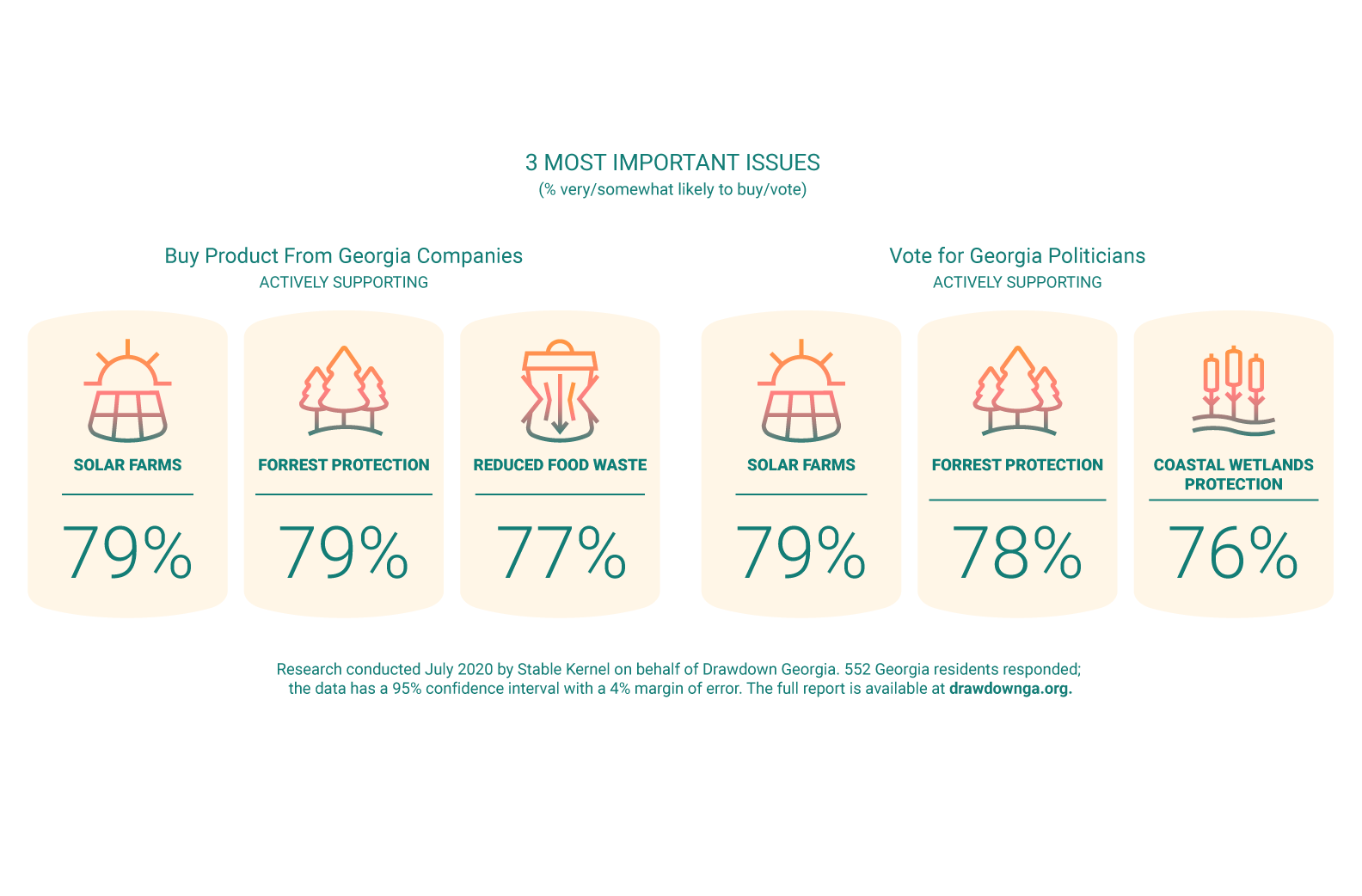
“We’re launching a nonpartisan effort to accelerate climate solutions in a Southern state where we might anticipate not only political divides but also divides across the urban/suburban/rural landscape -- and even disparity among races -- so we wanted to get a sense of where we are starting,” explained John A. Lanier, executive director of the Ray C. Anderson Foundation and a founding partner of Drawdown Georgia. “It’s extraordinarily exciting to see that the majority of people in our state are pro-climate solutions, that they see and acknowledge a link between climate impacts and social justice, and that the numbers get bigger as the respondents get younger – this points to a bright future for our movement and for the state of Georgia in general.”
Fifty-six percent of Georgians believe climate change and social justice issues are either strongly related or somewhat related, especially college students, urban residents, 18-34-year-olds and African Americans, and when asked, “What is the relationship between climate change and social justice,” Georgians say the following: “They both call for a solution,” and “Both need cooperation to get things done.”
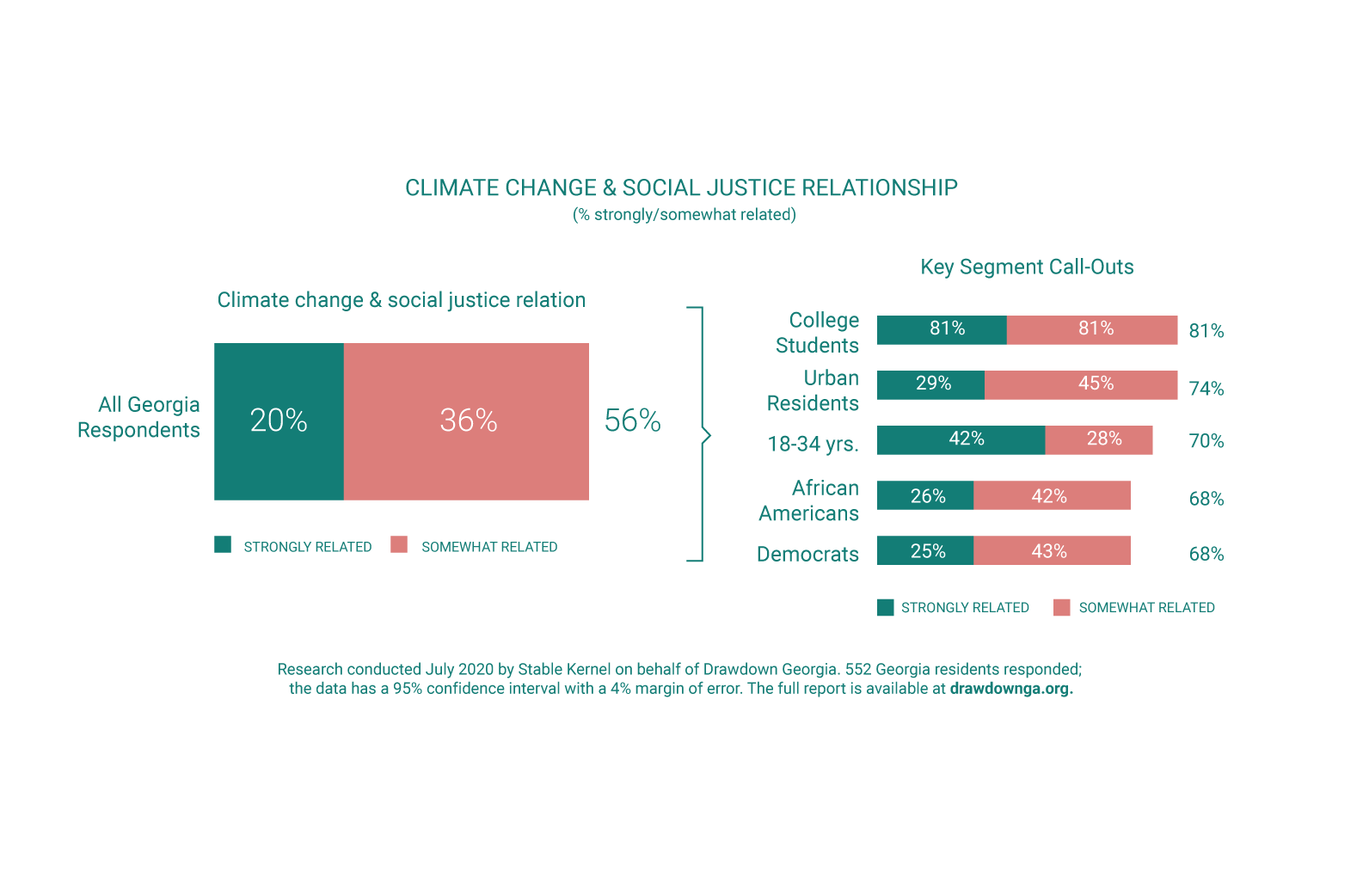
Since COVID-19 began, 43% of Georgians report they are more aware of climate change, and over half are participating in new, healthy, and climate-friendly activities such as eating & cooking with more seasonal foods, putting more focus on creating less waste, and growing vegetables at home.
Over half of Georgians have also become more appreciative of the outdoor activities GA has to offer including college students (81%), 18-34-year-olds (76%), urban residents (62%) and African Americans (56%).
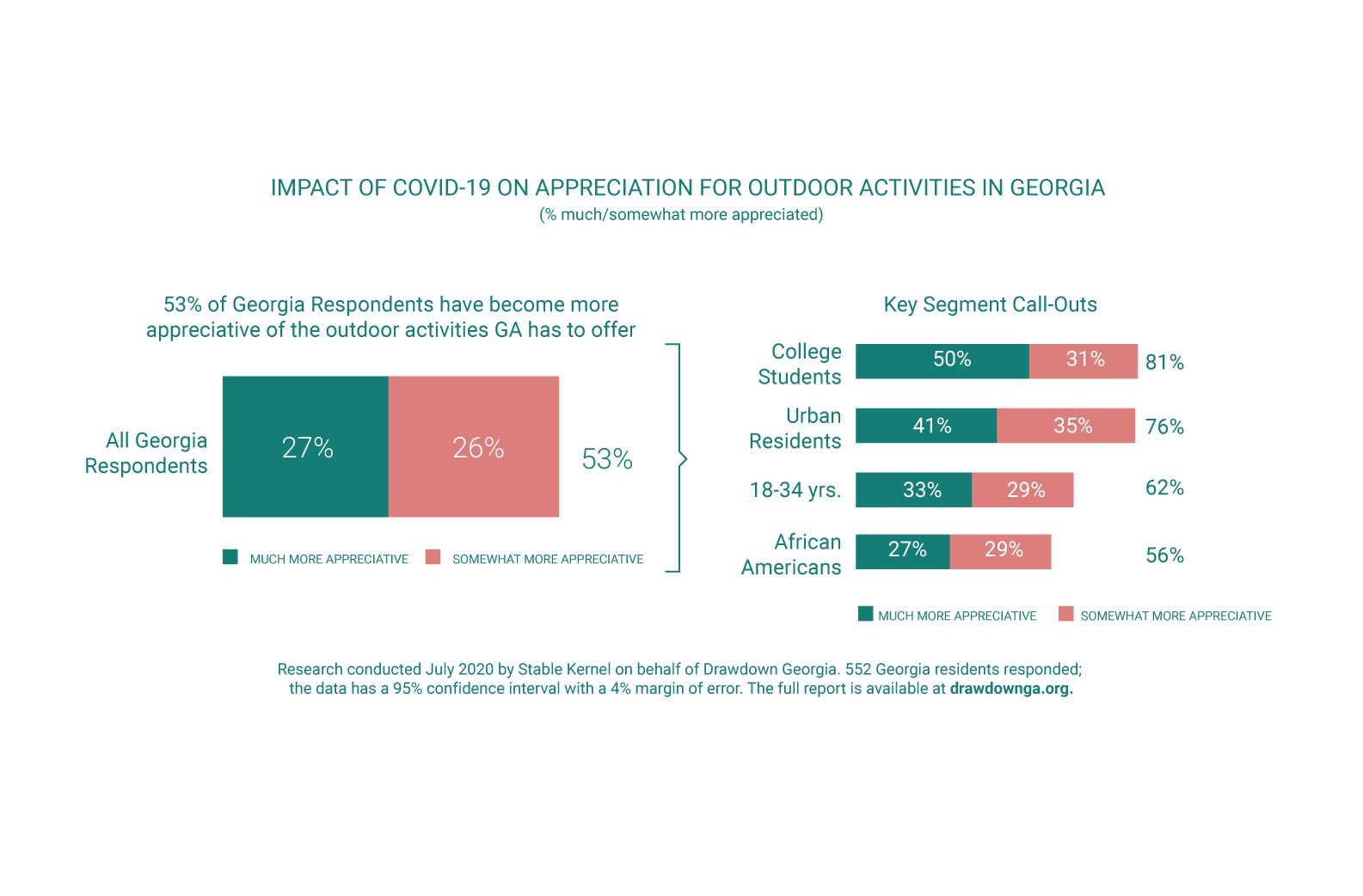
“Solving for climate is and should be an invitation to everyone in the community,” said John. “Getting closer to the natural world is a great way to get inspired into action. This polling result points to the potential for Drawdown Georgia to be successful in engaging business and civic leaders, advocates and innovators in working together to accelerate our path to a low carbon world.”
About Drawdown Georgia
Informed by Project Drawdown, the world’s leading resource for climate solutions, Drawdown Georgia is the first state-centered effort to crowdsolve for climate change. The goal is to catalyze and scale 20 high impact solutions so Georgia can do its part to advance Drawdown -- that point in the future when levels of greenhouse gases in the atmosphere stop climbing and start to steadily decline.
The Drawdown Georgia roadmap was vetted by an expert team of Georgia-based academics, climate scientists, and researchers led by Georgia Institute of Technology, in partnership with Emory University, Georgia State University and the University of Georgia. Drawdown Georgia estimates that the state's current carbon footprint is 125 megatons, with the potential to cut Georgia's carbon impact by about 35% in ten years, to 79 megatons.
The solutions are based on five focus areas with the best potential to create the most change in Georgia: Electricity, Transportation, Buildings & Materials, Food & Agriculture, and Land Sinks. Currently funded by the Ray C. Anderson Foundation, Drawdown Georgia is bringing climate solutions home. Visit our home page.


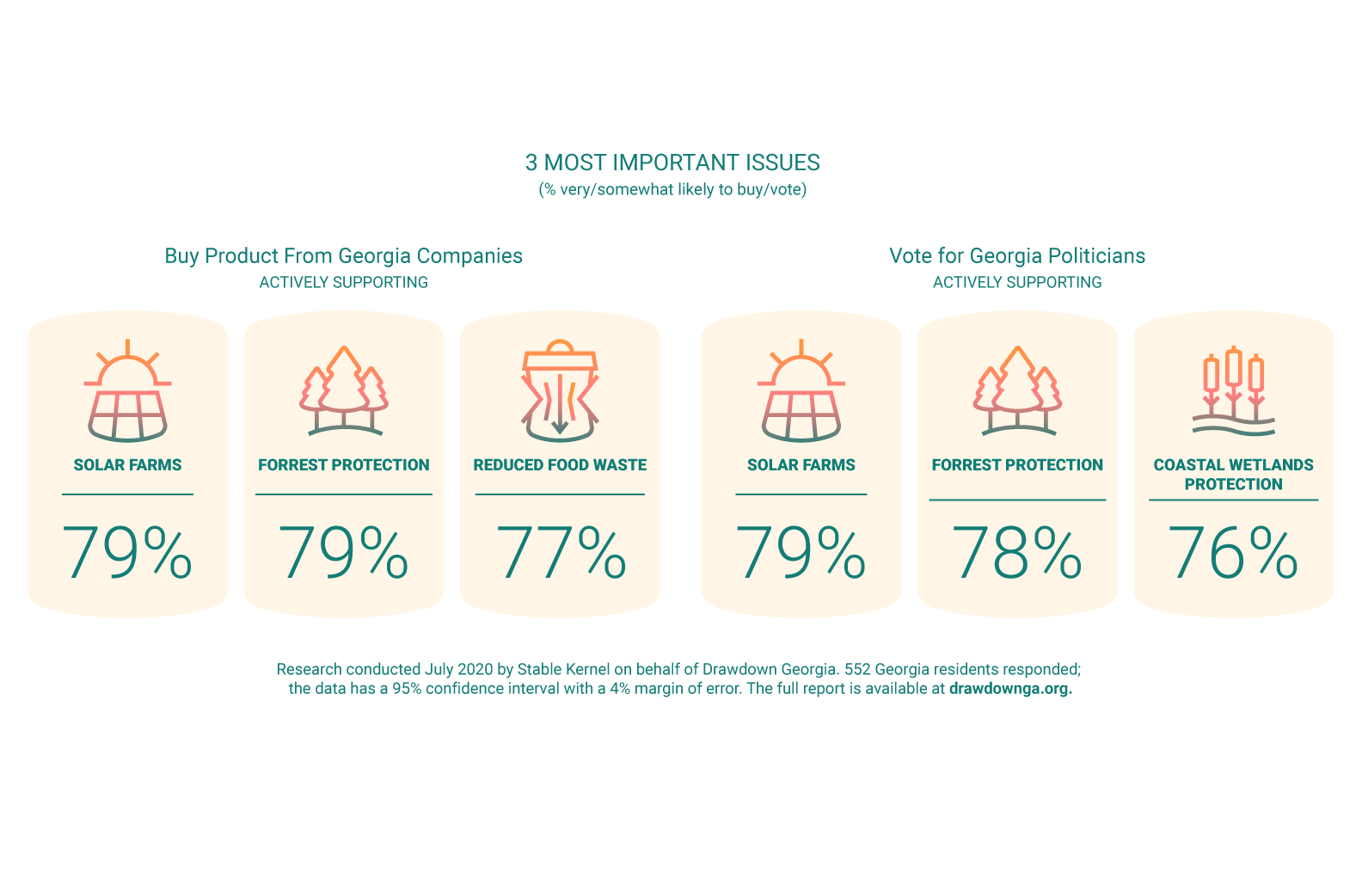
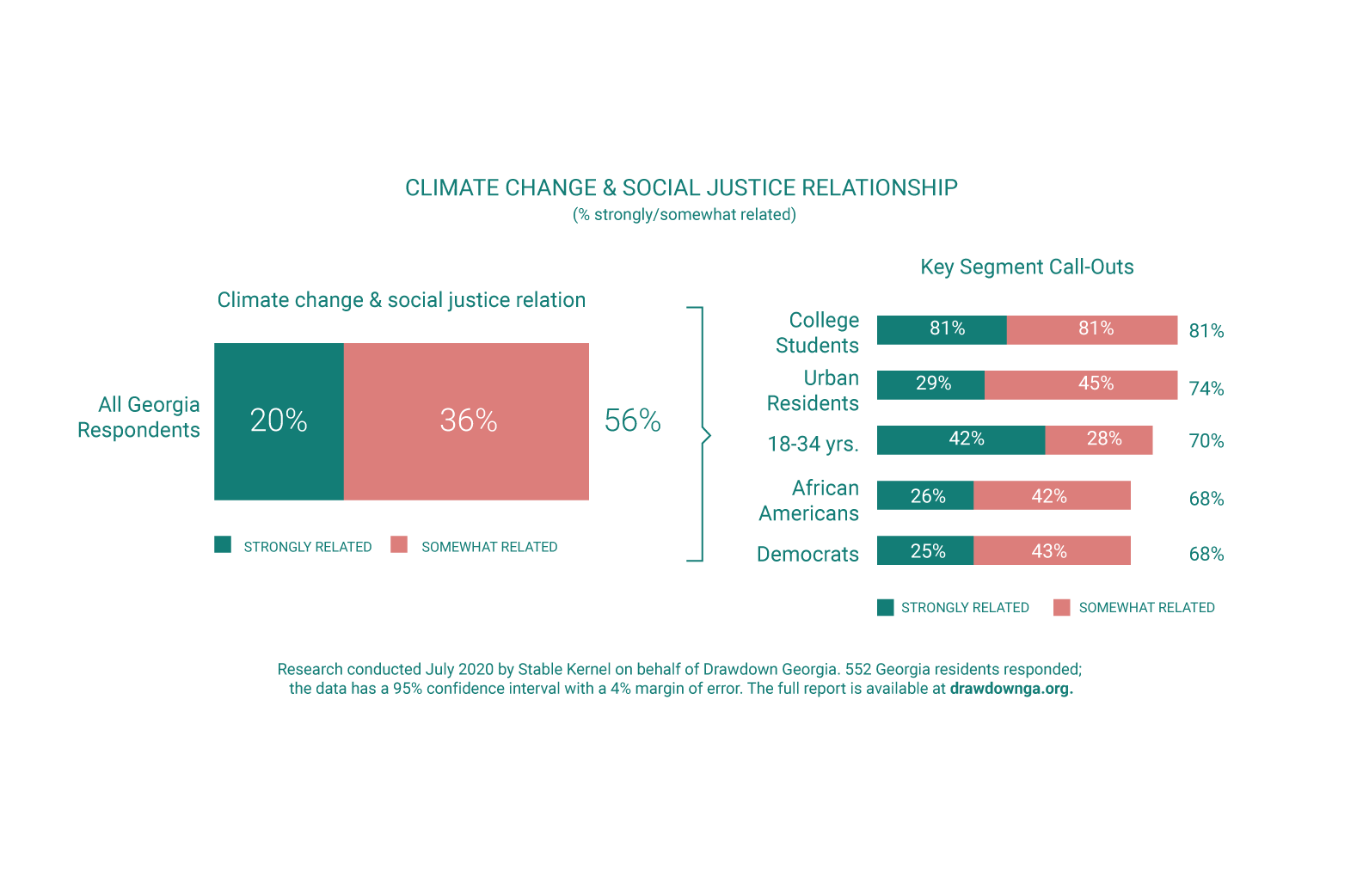
 Image Gallery
Image Gallery